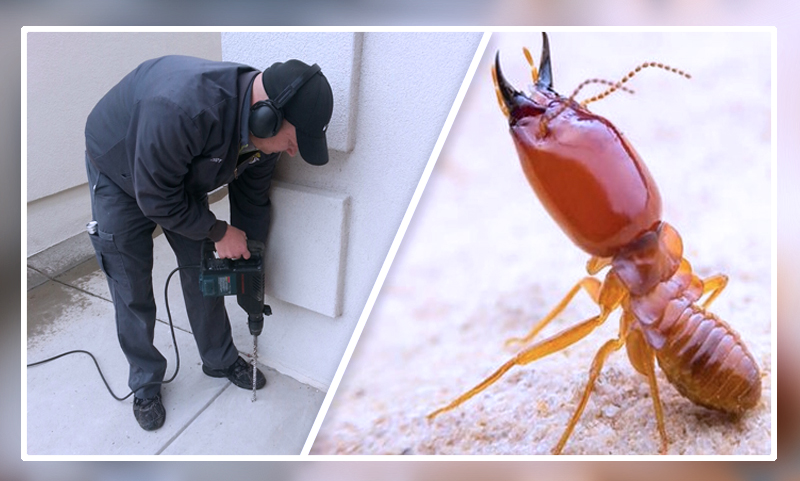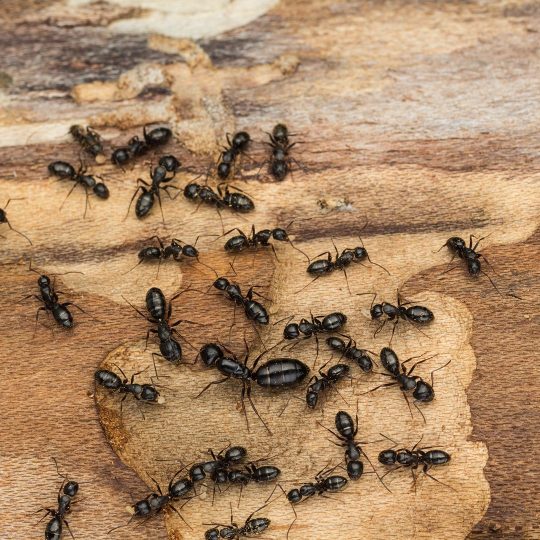Environmental Effect of Insect Control: Balancing Effectiveness With Sustainability
The environmental influence of insect control is an important issue that calls for a fragile equilibrium between attaining efficiency in taking care of pests and ensuring sustainability of our ecological communities. As we aim to protect our plants, homes, and health from the hazards positioned by insects, the methods we use can unintentionally harm the atmosphere. From making use of dangerous chemicals that leak right into our dirt and water to the unexpected effects on non-target varieties, the repercussions of traditional parasite control practices are significant. However, there are arising approaches that use hope for an extra lasting method to pest monitoring. These remedies not only objective to attend to the prompt pest issues however likewise think about the long-term wellness of our earth.
Damaging Chemicals in Pest Control
The use of damaging chemicals in bug control poses considerable ecological and wellness dangers that necessitate cautious consideration and reduction methods. Herbicides, chemicals, and pesticides are generally used to get rid of insects, yet their widespread application can lead to unintentional repercussions. These chemicals can infect soil, water sources, and the air, affecting not just the targeted pests however likewise useful pests, wildlife, and humans.

To deal with these risks, incorporated pest administration (IPM) strategies are being promoted as a more lasting alternative. IPM entails a combination of techniques such as biological control, habitat control, and the targeted use pesticides as a last hotel (ant control gastonia nc). By taking on a holistic strategy to pest control, we can decrease the environmental and health effects connected with harmful chemicals while successfully taking care of pest populaces
Influence On Non-Target Types
Thinking about the unplanned consequences of parasite control approaches, the influence on non-target varieties is a critical facet that requires extensive analysis. While bug control steps intend to target particular insects, other microorganisms in the environment may be unintentionally affected. Non-target species, including helpful insects, birds, creatures, and even plants, can suffer indirect or straight damage from chemical applications or biological control approaches.
Pesticides created to fight a particular insect pest may harm pollinators like or all-natural killers such as ladybugs. Biological control agents, if not species-specific, can pose threats to unplanned targets, interrupting the environmental equilibrium.
To mitigate the impact on non-target types, integrated bug administration (IPM) techniques that stress an all natural approach to pest control are suggested. These methods focus on making use of environmentally friendly practices, reducing damage to useful organisms while efficiently handling pest populaces. Carrying out comprehensive danger evaluations and keeping an eye on the results of bug control initiatives are essential actions in protecting non-target types and promoting general community health and wellness.
Dirt and Water Contamination
Unplanned ecological repercussions of insect control techniques expand past influencing non-target species, with significant implications for soil and water contamination. Pesticides, herbicides, and chemical fertilizers made use of in parasite control can leach right into the soil and infect groundwater, positioning a risk to both terrestrial and water ecosystems. Dirt contamination can disrupt the balance of bacteria crucial for nutrient cycling and plant development, resulting in decreased soil fertility and productivity. These chemicals can persist in the setting for extensive periods, gathering in the dirt and potentially going into the food chain.
Water contamination is another crucial issue linked with parasite control techniques. To alleviate soil and water contamination from insect control activities, integrated pest monitoring methods that prioritize sustainability and lessen chemical inputs are essential.
Air Pollution From Chemical Use
Direct exposure to air-borne chemicals during farming applications postures a substantial worry for air pollution control measures. They can volatilize into the air and kind unstable organic substances (VOCs) and various other airborne toxins when chemicals are splashed onto plants - ant control services. These chemicals can add to the formation of ground-level ozone, a significant element of smog that can have detrimental impacts on human health and wellness, plant efficiency, and overall air top quality. Furthermore, chemical drift, where chemicals are carried by the wind to unintentional areas, can lead to the contamination of close-by communities and water bodies.

Techniques for Lasting Parasite Control
In the realm of agricultural methods, applying lasting pest control techniques is paramount for preserving eco-friendly equilibrium and safeguarding crop yields. Sustainable insect control stresses making use of eco-friendly techniques to take care of parasite populaces effectively while decreasing harm to non-target organisms and ecological communities. Integrated Pest Management (IPM) is a commonly embraced approach that integrates biological, cultural, physical, and chemical control techniques to accomplish long-lasting bug administration options.
One key method in lasting parasite control is promoting biodiversity within agroecosystems. By boosting all-natural adversaries of pests, such as parasitoids and killers, farmers can lower the demand for artificial pesticides. Plant turning and diversity are likewise effective techniques to interfere with pest life process and develop much less desirable problems for insects to flourish. Additionally, utilizing pest-resistant crop varieties and using strategies like trap cropping can aid lower bug pressure without relying greatly on chemical treatments. Eventually, by integrating these lasting insect control strategies, farmers can achieve a balance in between pest administration effectiveness and ecological stewardship.
Conclusion
In verdict, the ecological impact of bug control methods have to be very carefully taken into consideration to balance efficiency with sustainability. Damaging chemicals used in insect control can bring about soil and water contamination, air contamination, and injury non-target types - ant control. It is vital to implement sustainable bug control strategies to reduce these adverse results on the setting and promote a healthier ecosystem for future generations
By taking on an all natural method to pest control, we can minimize the environmental and wellness influences linked with hazardous chemicals while successfully taking care of pest populaces.

To reduce the air contamination created by chemical use, it is necessary to adopt incorporated pest monitoring techniques that focus on the use of non-chemical parasite control techniques, such as plant rotation, all-natural killers, and resistant plant selections. Sustainable bug control emphasizes the usage of eco friendly approaches to manage look at here insect populaces effectively while decreasing injury to non-target organisms and ecological communities. Integrated Insect Monitoring (IPM) is a widely embraced technique that incorporates biological, social, physical, and chemical control methods to accomplish long-lasting parasite management services.